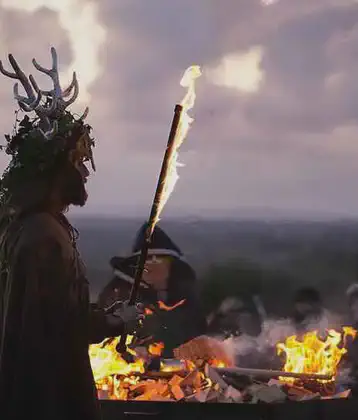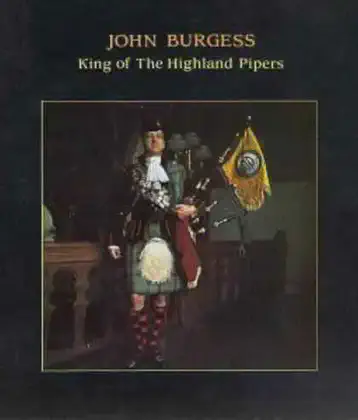On July 24, 1294 in Celtic History
De vescy accuses john fitz thomas, of defamation

In 1282 Thomas succeeded to the barony of Desmond, in Munster, southwest Ireland.
His succession followed a long minority, as he could not inherit his lands until the age of 21.
His father, Maurice fitz John Fitzgerald and grandfather, John fitz Thomas FitzGerald were both killed in the Battle of Callann in July 24, 1261.
The Crooked Heir
He was nick-named Thomas-an-appagh (the monkey-nurtured) because of the story that, during his infancy, he was cared for by an ape during a time of trouble; he is also occasionally referred to as “The Crooked Heir.”
In 1294, Thomas was appointed deputy justiciar, acting as Lord Justice after the death of William d’Oddingseles.
Died in 1298
Thomas died in 1298, and was buried in the Dominican Priory of North Abbey, Youghal, which he had founded.
Several of the Barons and Earls of Desmond were later buried in the same abbey.
Before the council of Dublin, de Vescy accuses John Fitz Thomas, Baron of Offaly, of defaming him to the king and council in England. Fitz Thomas retorts that de Vescy has described the king as the most perverse and dastardly knight of his kingdom.
Vescy Fued
William de Vescy (Vesci), (1245–97), justiciar of Ireland, was born 19 September 1245, the younger son of William de Vescy and his second wife, Agnes, daughter of William de Ferrers, earl of Derby, co-heiress of the great estates of William Marshal in Britain and Ireland.
Vescy was involved in a bitter dispute with the increasingly powerful John fitzThomas FitzGerald , nominally a vassal of the lord of Kildare. Although the origin of the conflict was probably a local power struggle, it was compounded by Vescy’s decision as justiciar to back a rival claimant to fitz Thomas’s nominee for the kingship of the Uí Conchobair of Connacht.
Indeed, so seriously did their relationship deteriorate that Vescy summoned the royal service of Ireland to meet at Kildare in July 1293; ostensibly it was called to campaign against the Irish of Offaly, but the summons was hurriedly cancelled by the king, who rightly feared it would be used to march against fitzThomas.
During Vescy’s absence in England in early 1294 An Calbach O’Connor Faly, almost certainly with fitzThomas’s connivance if not outright cooperation, raided the lordship of Kildare and levelled the castle of Kildare, burning all of the records held within it.
King’s Irish Council
When Vescy returned to Ireland he summoned fitzThomas to Dublin before the king’s Irish council to answer charges of defamation.
At a meeting in April 1294 attended by Gilbert de Clare, earl of Gloucester and lord of Kilkenny, fitz Thomas refused to recant and went even further, accusing the justiciar of slandering the king, indeed accusing him of lese-majesty. According to fitz Thomas, Vescy had said:
the people of Ireland were the most miserable he knew, for they could be, if they so wished, great lords, . . . if they knew the king as well as he they would not value him, for he is the most perverse and dastardly knight of his kingdom.
A Duel
Immediately Vescy demanded that fitz Thomas defend his accusations by wager of battle, and a duel was arranged for July before the king at Westminster. On the appointed day Vescy arrived, ready for battle, but fitzThomas failed to appear and his accusations were dismissed. (In the same way the charges of the abbot of St Thomas were dismissed following his non-attendance at court.)
Related Content

Shane Patrick Lysaght MacGowan, lead singer of the Pogues, died
Shane Patrick Lysaght MacGowan is an Irish-English musician and songwriter, best known as the lead singer and songwriter of the punk band The Pogues.
Read More
St Machar Day, patron saint of Aberdeen
Saint Machar is the Diocesan Patron Saint of Aberdeen; the Feast Day being observed on 12th November.
Read More
Oíche Shamhna - Cetlic New Year Eve (Halloween)
In Scotland and Ireland, Halloween is known as Oíche Shamhna, while in Wales it is Nos Calan Gaeaf, the eve of the winters calend, or first. With the rise of Christianity, Samhain...
Read More
ALBAN ELFED (Welsh Bardic name for autumn equinox)
Alban Elued, The Light of the Water, the first day of Autumn, was also called Harvesthome. Observed on September 21, the Autumnal Equinox was the day when the sun again began to...
Read More
Feast day of St. James
Guinness St. James Gate Since mediaeval times, Dubliners held an annual drinking festival in the Saint’s honor. Fittingly, Guinness chose St. James’ Gate as the site for their...
Read More
John Davie Burgess, King of the Highland Pipers, died at age 71.
John Burgess died on June 29, 2005 at the age of 71.
Read More
No location specified

No location specified

No location specified

No location specified

No location specified

No location specified

No location specified

No location specified